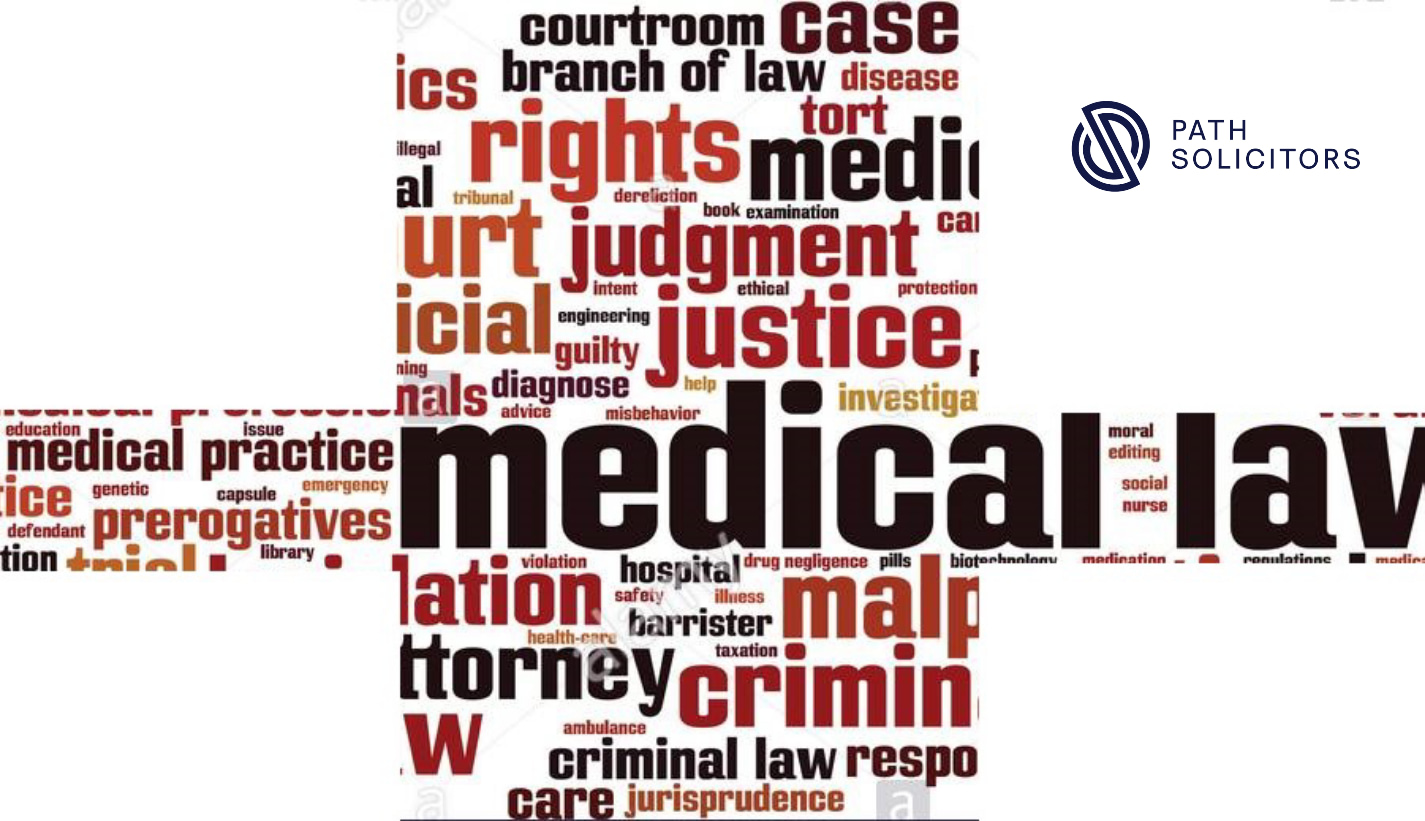Implications of Abuse of a Patient’s Rights in a Post-Covid 19 Nigeria

By John Demide
Nigeria recognizes the right to health and has committed itself to its protection by assuming obligations under international treaties and domestic legislation mandating specific conduct with respect to the health. Nationally, it is guaranteed under Chapter 2 of the Constitution of the Federal Republic of Nigeria 1999 (as amended), the National Health Insurance Scheme Act (1999) etc to mention a few of the legislations that exist to push forward this proposition. Under the International Covenant on Economic, Social & Cultural Rights which Nigeria has adopted under Chapter 2, everyone has the right to “the highest attainable standard of physical and mental health.” Thus, the Nigerian Government is obligated to take effective steps for the “prevention, treatment and control of epidemic, endemic, occupational and other diseases.”[1].
Sadly, the skirt of the inadequacy of our infrastructure and the gaping holes in the enforcement of our laws was to be raised and our nakedness laid open On March 11, 2020, when the World Health Organization (WHO) declared that an outbreak of the viral disease COVID-19 – first identified in December 2019 in Wuhan, China – had reached the level of a global pandemic. Citing concerns with “the alarming levels of spread and severity,” the WHO called for governments to take urgent and aggressive action to stop the spread of the virus.[2]
Nigeria was not to be left out of the bandwagon of countries prepping themselves for the inevitable arrival of the dreaded virus that had been seen to be bringing greater nations down to their bare knees and knuckle. Struggling to stem the spread of an unseen villain that did not care about laws, regulations or the regulator.
Thus, the right to health as contained in Chapter two of the 1999 constitution under the fundamental objectives and directive principles of State policy was to be put to the test, as its brazen non observance over the years was to have severe socio-economic consequences for Nigeria. As was held in an article published “The right to health which is part of socioeconomic rights is connected to political, economic and social welfare and security for all citizens. Its enforceability is crucial for the sustenance of Nigeria, the lack of which may result in human insecurity, widespread diseases and endemic infections and lack of access to health care, all resulting in deprivation, as well as a retarded economic development and poor standards of living.”[3] Thus, the vilification of a citizen who goes to seek service from a Health institution under the auspice(s) of the facility being put on a lock-down to avert possible infection, can open up such an institution to being sued.
Nigeria’s National Health Act 2014 (NHA 2014) was signed into law on October 31, 2014. It provides a legal framework for the regulation, development, and management of Nigeria’s Health System. The NHA is made up of seven parts divided into various sections.[4] The seven parts of the NHA are Responsibility for health and eligibility for health services and establishment of National Health System, Health Establishments and Technologies, Rights and Obligations of Users and Healthcare Personnel, National Health Research and Information System, Human Resources for Health, Control of Use of Blood, Blood Products, Tissue and Gametes in Humans, and Regulations and Miscellaneous Provisions.
The act under reference states that a user may attend any health establishment for the purpose of receiving health services and where such a user is unable to secure access to such services in a state hospital, such a hospital is to refer such a user to an appropriate health establishment which is capable of providing the necessary treatment or care so needed[5]. International human rights law guarantees everyone the right to the highest attainable standard of health and obligates governments to take steps to prevent threats to public health and to provide medical care to those who need it. Human rights law also recognizes that in the context of serious public health threats and public emergencies, restrictions on some rights can be justified when they have a legal basis. However, under the Covid-19 pandemic that we have found ourselves in, we have the possibility of public and private hospitals misdiagnosing persons who have slight of high-temperatures that are symptomatic of the common tropical Malaria/Fever that could be mistaken to be the similar symptoms of Covid-19. Thus, in a situation like this, when a user is denied access to the health services, what are the remedies available to such a user of the National Health services fundamentally enshrined under the 1999 Constitution and the National health Act.

Under the NHA, a user is guaranteed the right to unabated knowledge and all relevant information relating to his/her status and the relevant treatment[6] and the 1999 constitution grants an individual freedom of movement, thus allowing such a user to be able to move to the most appropriate health institution in search of treatment. This position of the law thus, puts the health service provider in a position to ensure that the patient/user is meant to be properly and adequately informed of his/her condition. Where this is not done, the health care provider can be said to have invariably infringed on the user’s right. On the flip side, with the existence of the Covid-19 pandemic and the directive by the Nigerian Centre for Disease Control to quarantine any known/suspected cases of Covid-19, there are bound to be brazen withdrawal of an individual’s rights in a bid to stem the spread of the virus, thus leading to forced detention of person’s suspected to be infected.
The scale and severity of the COVID-19 pandemic clearly rises to the level of a public health threat that could justify restrictions on certain rights, such as those that result from the imposition of quarantine or isolation limiting freedom of movement. At the same time, careful attention to human rights such as non-discrimination and human rights principles such as transparency and respect for human dignity can foster an effective response amidst the turmoil and disruption that inevitably results in times of crisis and limit the harms that can come from the imposition of overly broad measures that do not meet the above criteria.
Thus, the rights of an individual as much as it is provided for under the ground norm of the country[7], can be revoked in times of uncertainty for the greater good. However, the mode in which the right(s) are revoked brings to the fore, the remedies that might be availed an individual who is wrongly diagnosed and subjected to humiliating and inhuman circumstances that could warp the person’s mind or position in the public standing.
The Human Rights Position
Protect freedom of expression and ensure access to critical information
Under international human rights law, governments have an obligation to protect the right to freedom of expression, including the right to seek, receive, and impart information of all kinds, regardless of frontiers. Permissible restrictions on freedom of expression for reasons of public health, may not put in jeopardy the right itself.[8]
Governments are responsible for providing information necessary for the protection and promotion of rights, including the right to health. The Committee on Economic, Social and Cultural Rights regards as a “core obligation” providing “education and access to information concerning the main health problems in the community, including methods of preventing and controlling them.” A rights-respecting response to COVID-19 needs to ensure that accurate and up-to-date information about the virus, access to services, service disruptions, and other aspects of the response to the outbreak is readily available and accessible to all.
To ensure that restrictions are not arbitrary a community reading of the provisions of Chapter 4 and the provisions under International human rights law need to be taken in a wholistic manner. Notably the International Covenant on Civil and Political Rights (ICCPR), requires that restrictions on rights for reasons of public health or national emergency be lawful, necessary and proportionate. Restrictions such as mandatory quarantine or isolation of symptomatic people must, at a minimum, be carried out in accordance with the law. They must be strictly necessary to achieve a legitimate objective, based on scientific evidence, proportionate to achieve that objective, neither arbitrary nor discriminatory in application, of limited duration, respectful of human dignity, and subject to review.
Broad quarantines and lockdowns of indeterminate length rarely meet these criteria and are often imposed precipitously, without ensuring the protection of those under quarantine – especially at-risk populations. Because such quarantines and lockdowns are difficult to impose and enforce uniformly, they are often arbitrary or discriminatory in application. Thus freedom on movement although provided for under the constitution, it can be revoked. Restrictions on these rights can only be imposed when lawful, for a legitimate purpose, and when the restrictions are proportionate, including in considering their impact. (to be continued)
[1] https://www.hrw.org/news/2020/03/19/human-rights-dimensions-covid-19-response
[2] Human Rights Dimensions of Covid -19 Response; https://www.hrw.org/news/2020/03/19/human-rights-dimensions-covid-19-response
[3] “Nigeria: Health as a Human Right by Femi Falana”; https://allafrica.com/stories/201712200373.html
[4] National Assembly. National Health Act, 2014: Explanatory Memorandum. [Last accessed on 2015 Dec 29]. Available from: http://www.nassnig.org/document/download/7990
[5] Sections 17(1) & (2) National Health Act, 2014
[6] Section 23(1)
[7] The 1999 Constitution as amended…
[8] Ibid 2
